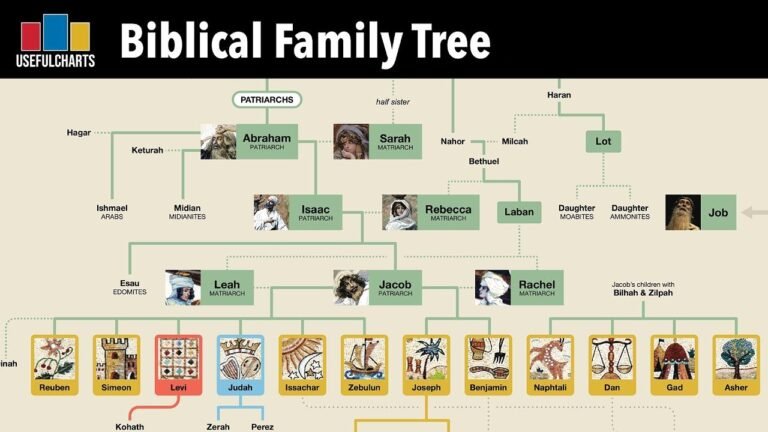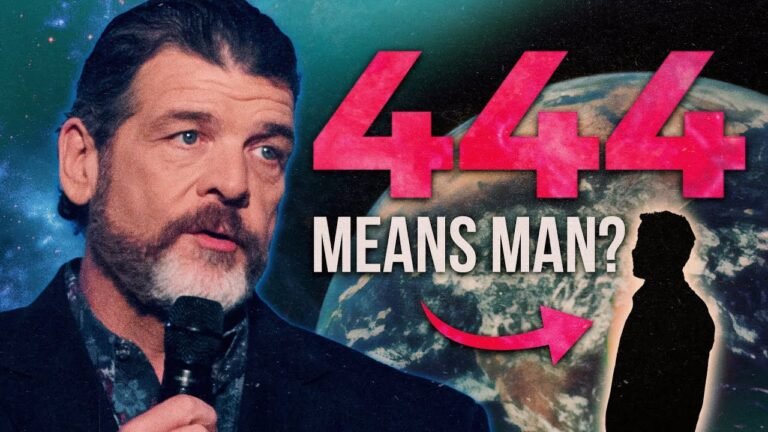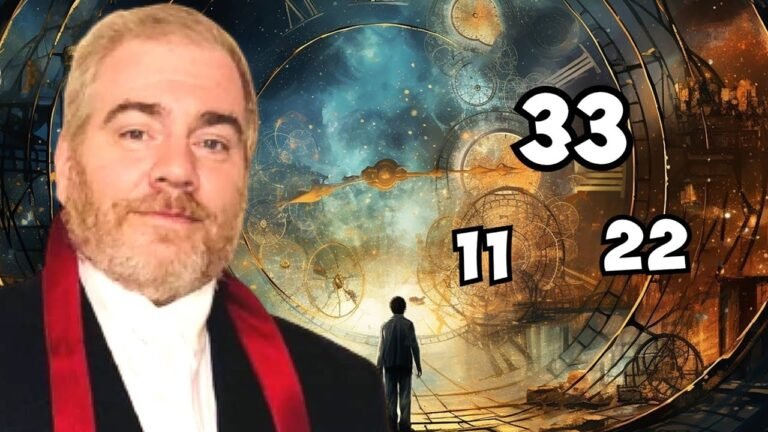The Legacy of Biblical Adam: Origins and Influence
The biblical Adam, often regarded as the first human, embodies profound significance in religious and cultural narratives. His story transcends mere mythology, offering insights into human nature, morality, and the intricate relationship between humanity and divinity. From the Garden of Eden to his role in the creation narrative, Adam’s journey raises essential questions about identity, responsibility, and the essence of free will. As we explore his legacy, we uncover not just a foundational figure in Judeo-Christian thought, but also a timeless symbol of the human experience.
What is Adam’s real name in the Bible?
In the Bible, the name Adam holds significant meaning beyond merely identifying a person. Derived from the Hebrew word ‘adham, which translates to “man,” it encompasses the concept of humanity as a whole. This multifaceted term appears in Genesis 1:26-27, where it refers to both male and female, highlighting the inclusive nature of the human species.
However, Adam also serves as a proper name, specifically identifying the first man in biblical narrative. In passages such as Genesis 4:25 and 5:1, Adam is referred to as an individual, marking him as a pivotal figure in the creation story. This dual usage enriches the text, illustrating not only the origin of mankind but also the personal significance of the first human.
What is God’s perspective on Adam?
In the biblical narrative, God shows both care and caution regarding Adam’s newfound awareness. After Adam and his wife became aware of their nakedness, the LORD took it upon Himself to provide them with garments of skin, symbolizing His compassion and desire to protect them even in their moment of vulnerability. This act of clothing them reflects a deeper understanding of their human condition and the consequences of their choices.
Furthermore, God acknowledges Adam’s transformation after the fall, recognizing that he now possesses the knowledge of good and evil. This awareness comes with responsibility, prompting God to prevent Adam from accessing the tree of life, thus safeguarding him from eternal separation in a fallen state. Through these actions, the narrative highlights God’s protective nature and the profound implications of human choice in the divine plan.
What is the reason behind God giving Adam his name?
In the creation narrative, God meticulously shapes Adam from the soil, highlighting the intimate connection between humanity and the earth. This act of formation is not just physical; it signifies a deeper bond that underscores humanity’s origins. The name “Adam” is derived from the Hebrew word “adamah,” meaning “earth,” illustrating the fundamental relationship between the first man and the ground from which he was created.
The act of naming is significant in biblical tradition, representing authority and identity. By giving Adam his name, God emphasizes his unique role in creation as the first human being, tasked with stewardship over the earth. This naming is not merely a label; it encapsulates Adam’s essence and purpose, reminding him of his earthly beginnings and the divine breath that animates him.
Furthermore, when God breathes life into Adam, it is a profound moment that transcends mere physical existence. This divine breath signifies the impartation of spiritual life, elevating Adam from mere soil to a being capable of relationship with the Creator. Thus, Adam’s name serves as a constant reminder of his dual nature, rooted in the earth yet imbued with the breath of life that connects him to the divine.
Tracing the Footsteps of the First Man
In the vast expanse of our planet, the journey of humanity began with the first man, whose footsteps carved the path for generations to come. These early ancestors, driven by instinct and curiosity, wandered across landscapes that were both familiar and foreign, shaping the trajectory of human evolution. Their exploration not only led to the discovery of tools and fire but also illuminated the importance of community and collaboration, laying the groundwork for societal structures that would follow.
As we trace these ancient footsteps, we uncover rich narratives woven into the fabric of human history. Each discovery brings us closer to understanding the challenges they faced and the resilience they exhibited. From the arid deserts to lush forests, each environment presented unique obstacles that fostered innovation and adaptability. By reflecting on their journey, we gain valuable insights into our own existence, reminding us that the spirit of exploration and the quest for knowledge remain as vital today as they were in those primordial times.
Adam’s Impact: Shaping Faith and Culture
Adam’s influence extends far beyond his role as a foundational figure in religious texts; he has become a symbol of humanity’s quest for identity and purpose. His story resonates through centuries, shaping theological discussions and inspiring countless interpretations that bridge faith and culture. From art and literature to modern philosophical debates, Adam represents the complexities of free will, morality, and the human condition. This enduring legacy not only invites reflection on our origins but also challenges us to consider our responsibilities in a rapidly changing world, encouraging a dialogue that continues to evolve and inspire.
From Eden to Eternity: A Lasting Influence
The narrative of humanity’s journey from Eden to eternity encapsulates a profound exploration of our roots and aspirations. The idyllic garden symbolizes the beginning of our existence, where harmony and innocence reigned. This foundational myth resonates across cultures, reminding us of the purity and potential that lies within our nature. As we navigate through the complexities of modern life, the lessons learned in Eden serve as a guiding principle, urging us to seek balance and connection with our surroundings.
As we forge ahead into an uncertain future, the enduring influence of this myth continues to shape our values and decisions. It inspires us to cultivate a world where compassion and stewardship take precedence over conflict and exploitation. From environmental sustainability to social justice, the echoes of Eden challenge us to envision a collective destiny that honors our shared humanity. Ultimately, this journey from Eden to eternity is not just a reflection of our past but a call to action, encouraging us to build a legacy that transcends time.
The First Human: Lessons from Genesis
In the beginning, the story of humanity is woven into the fabric of Genesis, where we find profound lessons about our origins and purpose. The narrative introduces Adam, the first human, as a figure crafted from dust and imbued with divine breath, symbolizing the intimate connection between humanity and the Creator. This foundational tale invites us to reflect on our unique role within the broader tapestry of life, emphasizing our responsibility to nurture the world around us.
As we explore Adam’s journey, we encounter themes of choice, companionship, and the quest for knowledge. The creation of Eve highlights the importance of relationships, suggesting that our strength lies in collaboration and understanding. This partnership not only enriches our lives but also serves as a reminder that we are inherently social beings, meant to support and uplift one another in our shared existence.
The lessons from Genesis extend beyond ancient texts, offering timeless insights into our modern lives. They call us to embrace our individuality while recognizing our interconnectedness, urging us to cultivate empathy and stewardship. By reflecting on the story of the first human, we are inspired to seek purpose, forge meaningful relationships, and take responsibility for the world we inhabit, shaping a future that honors the legacy of our beginnings.
Adam’s Role in Religious Narratives and Beyond
Adam occupies a pivotal role in various religious narratives, serving as the archetypal figure of humanity. In Judeo-Christian traditions, he represents the first human created by God, embodying both the potential for greatness and the susceptibility to failure. This duality illustrates the complexities of human nature, showcasing themes of innocence, temptation, and the consequences of choice. Adam’s story lays the foundation for understanding the relationship between humanity and the divine, as well as the moral dilemmas that arise from free will.
Beyond religious texts, Adam’s influence extends into philosophical and cultural discussions. He symbolizes the quest for knowledge and the intrinsic human desire to understand our origins and purpose. This exploration often leads to debates surrounding ethics, responsibility, and the nature of existence itself. The narrative of Adam not only prompts reflection on individual identity but also fosters dialogue about collective human experience, bridging diverse interpretations across cultures and eras.
Moreover, Adam’s legacy can be seen in modern discussions of environmental stewardship and social responsibility. As the “first caretaker” of the Earth, his story is increasingly relevant in conversations about sustainability and our role in preserving the planet for future generations. This connection highlights the ongoing relevance of ancient narratives in contemporary society, reminding us that the lessons derived from Adam’s life continue to resonate, urging us to consider our actions and their impact on the world around us.
The story of biblical Adam serves as a profound reminder of humanity’s origins and the complexities of free will, responsibility, and the quest for meaning. As we reflect on his journey, we are invited to explore the deeper truths of our own existence, encouraging a connection between ancient wisdom and contemporary life. Ultimately, the lessons gleaned from Adam’s narrative continue to resonate, inspiring introspection and a renewed appreciation for the intricate tapestry of human experience.







